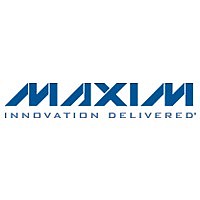DS2790G+T&R Maxim Integrated Products, DS2790G+T&R Datasheet - Page 12

DS2790G+T&R
Manufacturer Part Number
DS2790G+T&R
Description
IC FUEL GAUGE BATT 28-TDFN
Manufacturer
Maxim Integrated Products
Datasheet
1.DS2790E.pdf
(41 pages)
Specifications of DS2790G+T&R
Function
Fuel, Gas Gauge/Monitor
Battery Type
Lithium-Ion (Li-Ion)
Voltage - Supply
2.5 V ~ 5.5 V
Operating Temperature
-40°C ~ 85°C
Mounting Type
Surface Mount
Package / Case
28-TDFN
Lead Free Status / RoHS Status
Lead free / RoHS Compliant
Activating the JTAG interface and loading the Test Access Port (TAP) with the system programming instruction
invokes the bootstrap loader for use over the JTAG interface. Setting the SPE bit to 1 during reset through the
JTAG interface executes the bootstrap-loader-mode program that resides in the utility ROM. When programming is
complete, the bootstrap loader can clear the SPE bit and reset the device, allowing the device to bypass the utility
ROM and begin execution of the application software.
Performing a program request over the 2-wire interface also invokes the bootstrap loader. The user must
successfully complete a password match (If PWL = 1). The bootstrap loader functions are then fully supported over
the 2-wire interface. When programming is complete, the exit loader function is used to reset the DS2790 and
begin execution of the application software.
The following bootstrap loader functions are supported:
•
•
•
•
•
•
In-Application Programming
The in-application programming feature allows the microcontroller to modify its own EEPROM program memory.
This allows on-the-fly software updates in mission-critical applications that cannot afford downtime. Alternatively, it
allows the application to develop custom loader software that can operate under the control of the application
software. The utility ROM contains firmware-accessible EEPROM programming functions that erase and program
EEPROM memory. These functions are described in detail in the MAXQ Family User's Guide: DS2790
Supplement.
SYSTEM TIMING
The DS2790 generates its 1MHz instruction clock (OSCI) internally. This quick starting oscillator is used for
instruction fetch and execution by the MAXQ20 core. The analog oscillator (OSCA) is a band-gap based RC
oscillator that is trimmed to better than 2% accuracy. The analog clock runs independent of OSCI and serves as
the clock source for the ADC, watchdog timer, interval timer, and 2-wire timeouts.
OSCI is enabled through either a system interrupt or system POR and disabled through a system STOP. A voltage
brown out detection circuit disables OSCI if V
waits t
/ Counter (TMOD), or by the protection circuitry (PMM[1:0]).
Figure 4. System Clocks
Information Commands
Load EEPROM Code and Data
Dump EEPROM Code and Data
CRC EEPROM Code and Data
Verify EEPROM Code and Data
Erase EEPROM Code and Data
SU:OSCI
before re-enabling OSCI. OSCA is enabled by the Watchdog Timer signals EWDI or EWT, the Timer
DD
falls below V
12 of 41
BO
. Once V
DD
raises above V
BO
, a hysteresis circuit











